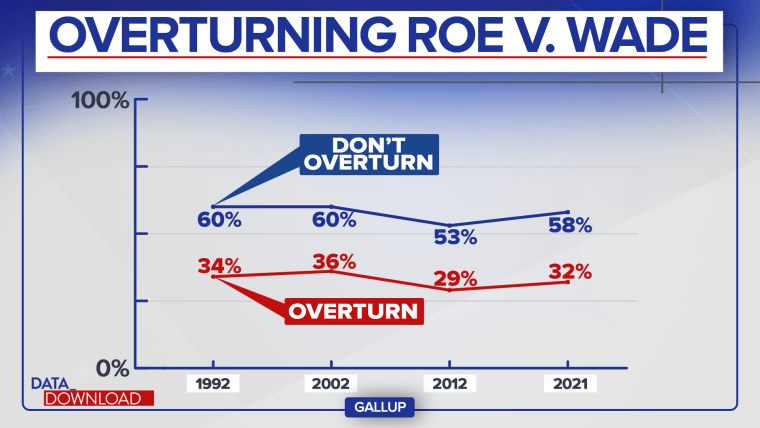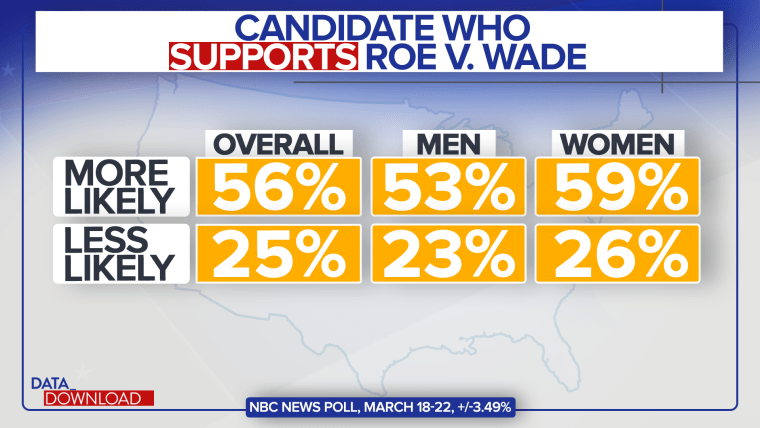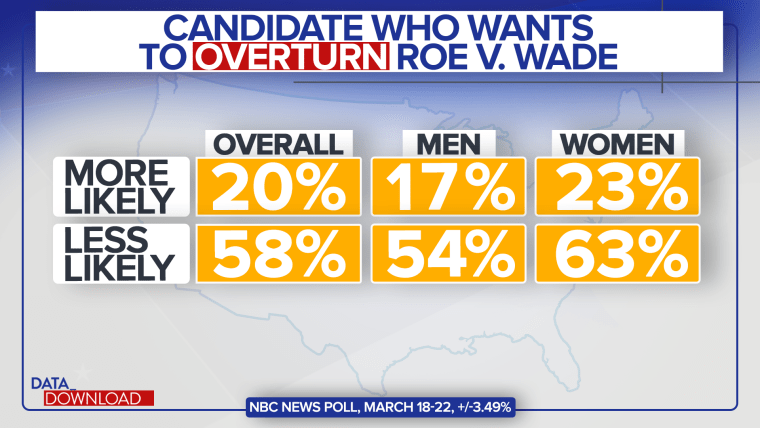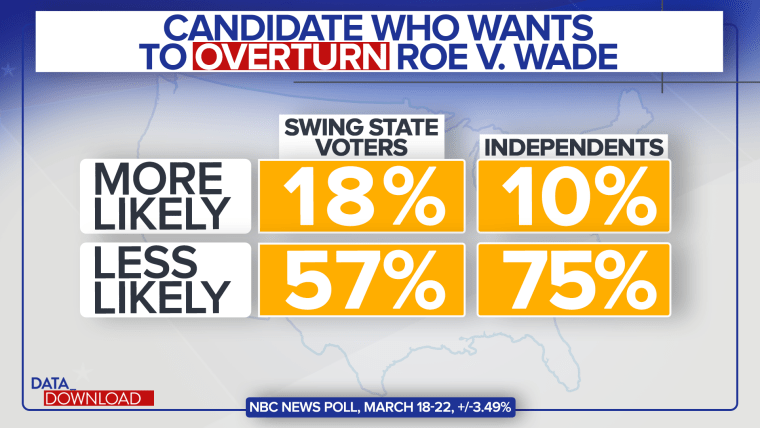WASHINGTON — As the 2022 midterm elections draw nearer, a massive issue lurks in the wings with the potential to alter the terrain: the Supreme Court ruling on Dobbs v. Jackson Women’s Health Organization.
The Dobbs ruling, expected this summer, centers on a Mississippi law that banned most abortions after 15 weeks of gestation. If the high court upholds the law, which many expect it will, or goes further to weaken or strike down the 1973 Roe v. Wade decision, the nation would receive a major shock to the system. And the latest NBC News poll suggests the tremors could rattle the 2022 campaign.
The reason Roe is even a point of discussion this year has to do with changes to the Supreme Court during former President Donald Trump's administration. Trump named three justices to the high court, and the assumption among many legal analysts is that the new members would like to overturn Roe. Dobbs represents a chance to do that.
But that's where things get complicated. Abortion has long been a divisive issue in the United States, but, generally speaking, Americans have had a fairly consistent view of the Roe decision.

In more than 30 years of polling, Gallup has never found support for overturning Roe above 40 percent. At the same time, opposition to overturning Roe has consistently stood above 50 percent — and in 2021 support for the precedent was close to 60 percent.
During that time, the political discussion over Roe has tended to focus on whether candidates support the decision, and again candidates who support Roe have tended to hold an edge. The latest NBC News poll asked this question and found solid support for candidates who back the ruling.

The survey found that voters were "more likely" to support a candidate who backed Roe by more than a 2-to-1 margin, and that was true among men and women.
Up to now, questions about the decision have been more theoretical than real. Roe, after all, is a longstanding precedent and even if candidates oppose it, they could quickly add that it was "the law of the land" and try to render the abortion question moot.
If the court upholds the Mississippi law, however, or weakens Roe further or even overturns it, voters may see the issue very differently.
Candidates may have to answer whether they support getting rid of Roe and, after the Dobbs decision, their answer may seem less theoretical and more concrete. The latest NBC News poll asked how voters would feel about a candidate who favored overturning Roe and found a very negative response.

Only 1 in 5 voters said they would be "more likely" to support a candidate who favored overturning Roe. By a margin of nearly 3 to 1, they said it would make them "less likely" to support a candidate.
And when you look at some key voter blocs, the numbers swing even more strongly against candidates who want to overturn Roe.

Among voters in 2020 swing states, 18 percent said they were "more likely" to vote for a candidate who favored overturning Roe, while 57 percent said they were "less likely."
With independents, the gap is 65 percentage points. Only 10 percent said they were "more likely" to vote for a candidate who wants to overturn Roe, while 75 percent said they'd be "less likely."
Those are sizable differences in parts of the electorate that are not solidly red or blue — the kinds of people and places that can decide close elections — and they come before the volume on the abortion debate has been cranked up, as it likely will be this summer.
These numbers are about more than Congress. In fact, they may have a special resonance in statehouse and governor races across the country. One can easily imagine Democratic gubernatorial candidates making a woman’s right to choose a central plank of any campaign if Roe is rolled back or overturned. And the abortion debate will move to the states if Roe is overturned.
There are clearly voters and communities that favor overturning Roe and in some congressional districts or states they might even be the majority, but the broader message in the data is that voters favor keeping Roe as the law of the land.
The numbers also suggest that the abortion debate, long seen as a strength among Republicans because of the way it fired up the party’s base, could be more problematic for the GOP in 2022.